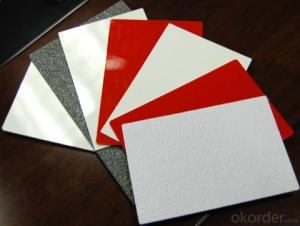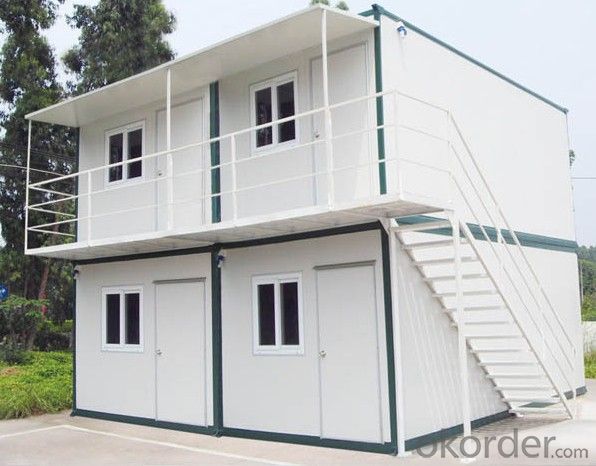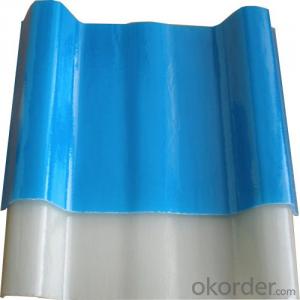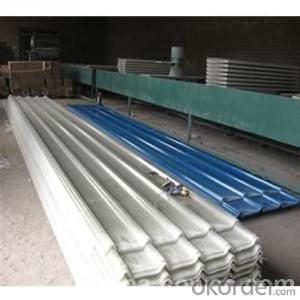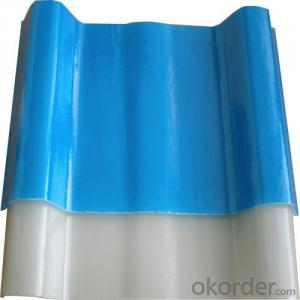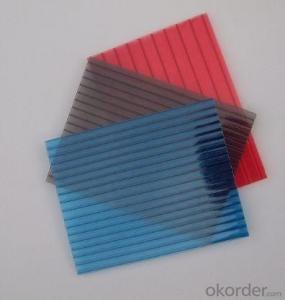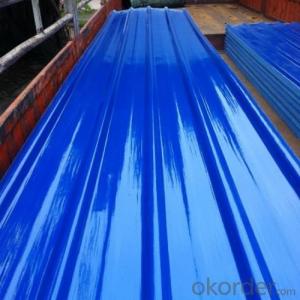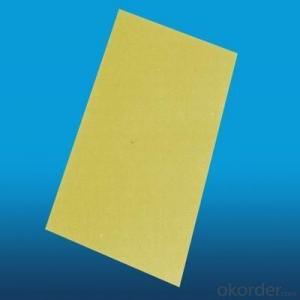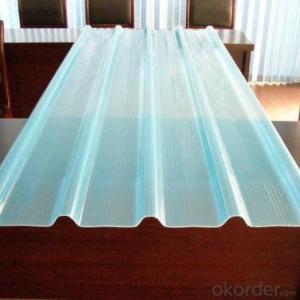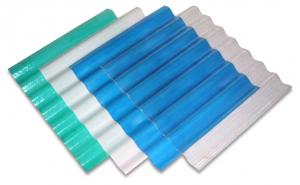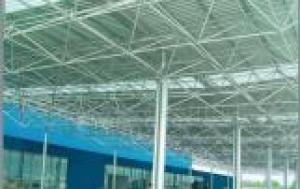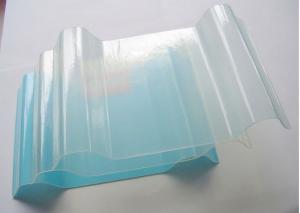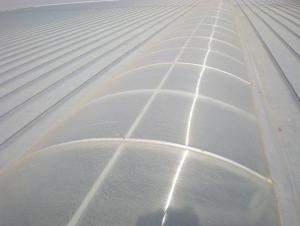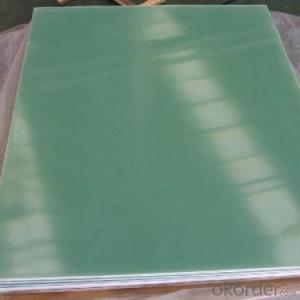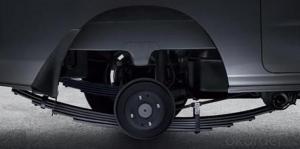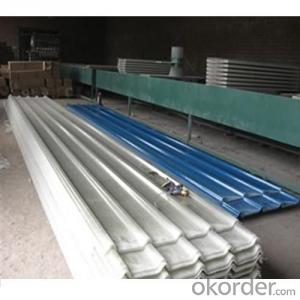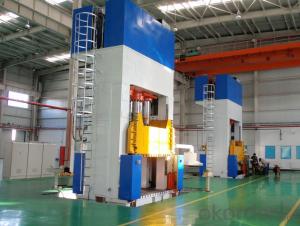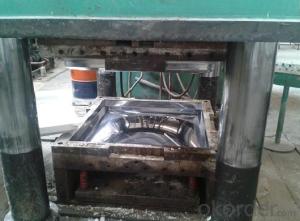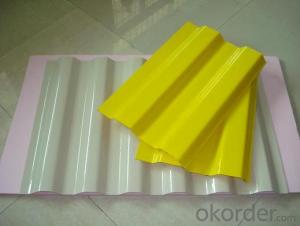FRP Decorative Roofing Panel
- Loading Port:
- Tianjin
- Payment Terms:
- TT OR LC
- Min Order Qty:
- -
- Supply Capability:
- 50000 m²/month
OKorder Service Pledge
OKorder Financial Service
You Might Also Like
1. Corrosion resistance
products are resistant to the corrosion of gas and liquid of acids, alkalis, salt, and organic solvent so that they can avoid the problem of rusting steel and rotten wood.
2. Light weight and high intensity
fiberglass products are molded through the solidification of fiberglass and resin under high temperature. Its density is only one quarter of that of steel, and two-thirds of that of aluminum. But its intensity is ten times that of PVC, exceeding the aluminum products and reaching the level of common carbon steel. Due to its light weight, the products require less base support and possess the features of easy installation and low costs.
3. Inflaming Retarding
The common oxygen index of common fiberglass products is above 32 (according to GB8924). By design, the flame spreading index of the high inflaming retarding ethylene products is below 10, which meets the requirements of engineering fire resistance for safety.
4. Collision Resistance and Fatigue Resistance
fiberglass products can resist collision and keep the original shape after repeated bending so as to be used as spring.
5. Age Resistance
The normal longevity is more than 20 years. The research result shows that the intensity will still retain more than 85% after 20 years’ exposure to the atmosphere.
6.Good appearance and Easy Maintenance
The color slurry offiberglass products is mixed with resin to make the color bright and difficult to fade. No painting is needed on the surface which is clean after washing.
- Q: Can FRP roofing panels be used for bus shelters?
- Indeed, bus shelters can make use of FRP (Fiberglass Reinforced Plastic) roofing panels. These panels find widespread application in the architectural field owing to their sturdy composition, lightweight properties, and ability to withstand various weather elements like UV radiation, rain, and snow. Moreover, they boast exceptional insulation capabilities that aid in maintaining a pleasant temperature within the shelter. Furthermore, the installation process for FRP roofing panels is hassle-free, and they demand minimal upkeep, thereby making them an ideal selection for bus shelters that experience regular usage and exposure to outdoor conditions.
- Q: Are FRP roofing panels compatible with solar panels?
- Yes, FRP roofing panels are compatible with solar panels. The lightweight and durable nature of FRP roofing panels make them an ideal choice for supporting and protecting solar panel systems. Additionally, the translucent properties of FRP panels allow for effective sunlight penetration, enhancing the overall efficiency of the solar panels.
- Q: Can FRP roofing panels be used in both residential and commercial applications?
- Yes, FRP (fiberglass reinforced plastic) roofing panels can be used in both residential and commercial applications. FRP panels are known for their durability, strength, and longevity, making them suitable for a wide range of applications. In residential settings, FRP panels can be used for roofs, skylights, carports, or patio covers. They provide protection against harsh weather conditions, such as extreme temperatures, UV radiation, and heavy rainfall. Similarly, in commercial applications, FRP roofing panels are commonly used for warehouses, factories, agricultural buildings, and commercial buildings such as shopping centers or office complexes. They offer excellent resistance to corrosion, chemicals, and fire, making them a reliable choice for commercial structures. Moreover, FRP panels come in various profiles, colors, and sizes, allowing for customization to suit the specific requirements of any residential or commercial project. They are lightweight, easy to install, and require minimal maintenance. Additionally, FRP panels have good insulation properties, which can contribute to energy efficiency in both residential and commercial buildings. Overall, FRP roofing panels are versatile and can be used effectively in both residential and commercial applications, providing durability, strength, and protection against environmental elements.
- Q: Are FRP roofing panels resistant to efflorescence or salts?
- FRP (Fiberglass Reinforced Plastic) roofing panels are generally resistant to efflorescence and salts. Efflorescence is the white powdery substance that forms on the surface of materials when water evaporates and leaves behind salt deposits. FRP panels are made of a solid, non-porous material that does not absorb water, so they are less prone to efflorescence compared to other materials like concrete or masonry. Additionally, FRP panels are typically resistant to salts. Salts can cause corrosion and degradation of materials over time, but FRP is known for its exceptional resistance to chemicals and environmental elements. However, it is important to note that the level of resistance may vary depending on the specific type and quality of the FRP roofing panel. To ensure the highest level of resistance to efflorescence and salts, it is recommended to choose FRP panels that have been specifically designed and manufactured for outdoor and high-exposure applications. It is also advisable to consult with the manufacturer or supplier to confirm the panel's resistance to efflorescence and salts in your specific environment or project conditions.
- Q: Can FRP roofing panels be installed on curved or domed roofs?
- Certainly! FRP roofing panels have the capability to be installed on roofs that are curved or domed. These panels are renowned for their flexibility and ability to adapt to different shapes and contours, thus making them a suitable choice for curved or domed surfaces. It is crucial, however, to ensure that the panels possess the appropriate flexibility and bending capabilities to match the unique curvature or dome shape of the roof. Furthermore, it is vital to utilize proper installation techniques and fasteners to guarantee the secure attachment of the panels to the roof structure. It is highly recommended to consult with a professional contractor or manufacturer to ensure that the FRP panels are appropriate for the specific curved or domed roof application.
- Q: Are FRP roofing panels weather-resistant?
- Yes, FRP (Fiberglass Reinforced Plastic) roofing panels are weather-resistant. They are specifically designed to withstand various weather conditions, including rain, snow, hail, and UV rays. FRP panels are durable, waterproof, and do not rot or corrode, making them an excellent choice for outdoor applications where weather resistance is crucial.
- Q: Are FRP roofing panels prone to expansion and contraction?
- FRP roofing panels, made of fiberglass reinforced plastic, exhibit excellent dimensional stability due to their composition. Unlike metal or wood, they have minimal tendency to expand or contract. Although all materials experience some degree of expansion and contraction caused by temperature and humidity variations, FRP panels are engineered to minimize these effects. The reinforcement of fiberglass in FRP panels ensures even stress distribution, preventing warping or bowing due to thermal expansion. Moreover, manufacturers often apply UV-resistant coatings to FRP panels, safeguarding them from sun damage. This preserves their structural integrity and prevents significant expansion or contraction resulting from prolonged heat exposure. Nevertheless, it is essential to note that extreme temperature fluctuations or incorrect installation can still cause slight expansion or contraction in FRP panels. To mitigate these potential issues, it is crucial to adhere to the manufacturer's guidelines and employ proper installation techniques. Additionally, regular inspections and maintenance are necessary to detect and rectify any emerging problems before they escalate.
- Q: Are FRP roofing panels lightweight?
- FRP roofing panels are indeed lightweight. They possess a high strength-to-weight ratio, making them a durable and lightweight option for roofs. These panels are commonly manufactured using a blend of fiberglass and plastic resin, resulting in a material that is considerably lighter than conventional roofing materials like metal or concrete. The lightweight characteristic of FRP roofing panels simplifies their handling and installation, consequently reducing labor and transportation expenses linked to the roofing project. Moreover, the lightweight nature of FRP roofing panels minimizes the strain on the underlying structure, making them a suitable choice for new constructions and retrofitting alike.
- Q: Are FRP roofing panels resistant to high temperatures?
- Yes, FRP (Fiberglass Reinforced Plastic) roofing panels are resistant to high temperatures. FRP is a composite material that is made up of a combination of fiberglass and plastic resin. The fiberglass provides strength and durability while the plastic resin provides heat resistance. FRP roofing panels are specifically designed to withstand high temperatures without warping, melting, or losing their structural integrity. This makes them an excellent choice for roofing applications in areas with extreme heat conditions, such as industrial facilities or regions with hot climates. Additionally, FRP roofing panels have low thermal conductivity, meaning they are effective at resisting heat transfer, which can help to keep the interior of a building cooler and reduce energy consumption. Overall, FRP roofing panels are known for their excellent heat resistance properties, making them a reliable choice for high-temperature environments.
- Q: Are FRP roofing panels resistant to chemical exposure in industrial environments?
- Yes, FRP (Fiberglass Reinforced Plastic) roofing panels are generally highly resistant to chemical exposure in industrial environments. FRP panels are known for their excellent corrosion resistance and can withstand exposure to a wide range of chemicals, including acids, alkalis, solvents, and fuels. They are commonly used in industrial settings such as chemical plants, refineries, and manufacturing facilities where there is a high risk of chemical exposure. FRP panels are designed to be chemically inert, meaning they do not react with or degrade in the presence of chemicals. This resistance to chemical exposure makes FRP roofing panels a durable and reliable choice for protecting industrial buildings and equipment from the potentially damaging effects of chemical substances. However, it is important to note that the specific performance of FRP panels may vary depending on the type and concentration of chemicals involved, so consulting with the manufacturer or a professional in the field is advised for specific application requirements.
Send your message to us
FRP Decorative Roofing Panel
- Loading Port:
- Tianjin
- Payment Terms:
- TT OR LC
- Min Order Qty:
- -
- Supply Capability:
- 50000 m²/month
OKorder Service Pledge
OKorder Financial Service
Similar products
Hot products
Hot Searches
Related keywords
